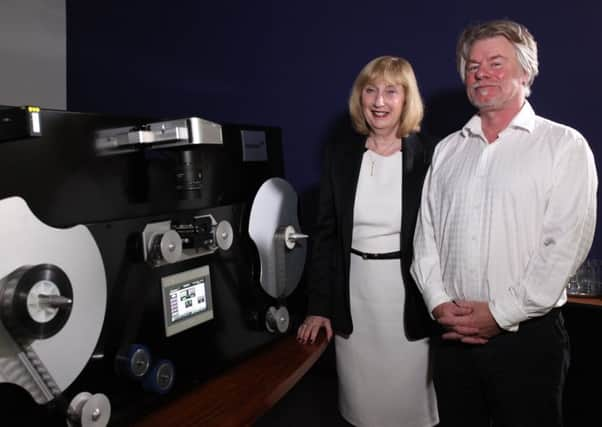Michael Howell: Digitise film to preserve Scots identity


With the cave men, the etchings were on the wall. During primitive times homo sapiens captured their lives and identities through carved and painted drawings on cave walls, often depicting hunts for deer and bison. A snapshot of a by-gone era, preserved for generations to come.
Such cave paintings were supplanted by oil and canvas. Over time man and technology developed, with painting eventually becoming the “real” image in a photograph. But it is the motion picture that brings still images to life, transforming the inert into the moving and living. Having worked in the motion picture industry for over 30 years, I am still amazed at the power of the moving film, the motion picture.
Advertisement
Hide AdAdvertisement
Hide AdWe Scots live in politically dynamic times, with Brexit and a second Scottish referendum on the cards. As the concept of nationality keeps moving, the need to capture and preserve Scottish history, heritage and identity could not be more crucial.
Scottish identity is intertwined with how we depict ourselves in film. Our love of our national drink shines through in Whisky Galore! and The Angel’s Share, while the grittier side of contemporary Scottish life is laid bare in Trainspotting.
Scotland loves film, and the film industry loves Scotland. It comes as no surprise then that earlier this year culture minister Fiona Hyslop announced plans for a new film studio to be based in Cumbernauld.
Beyond the glitz and glamour of blockbuster movies, film has an even more important role to play in capturing ordinary people going about daily life – queues of working class people scrambling to get into 1950s picture halls, a child’s first step, poverty in the tenements of Glasgow. Just think how many people are in a crowd shot. Every face in the crowd is someone’s relative. Every reel of film is a treasure to someone.
Today we live in an ageing population, with worrying statistics about age-related diseases such as dementia. Our memories interplay with our identity. When the former is hazy, the latter is threatened with extinction. Film can play a role here. Scots will remember times gone by through what has been captured on film. But here comes the fly in the ointment…
Every day we are losing film footage of significant historical and cultural importance as, until now, we have been unable to salvage or properly preserve it. Tens of thousands of film reels are currently lying dormant across the country in archives and studios. Hours of film footage which, without technology, could be lost forever.
But now the technology exists to digitise our archives, not only enhancing the imagery and audio, but making film searchable, accessible and shareable. Working with clients such as the main library at the University of Edinburgh and the Library of Congress in the US, home of the largest film archive, we’re taking film out of a can and making it available to the world.
This is, however, just part of the process.
If Scotland really wants to properly preserve its sense of self through film, then we need the big players on board. We need a deep dive into the archives at the National Library of Scotland, our universities, and the main broadcasters, including the BBC. Only then can we fully appreciate, understand and showcase what it means to be Scottish to the wider world.
Advertisement
Hide AdAdvertisement
Hide AdYouTube has over a billion users. If we were to digitise all our archive material, just think of the infinite opportunities for otherwise forgotten content to be seen globally.
Scotland has the potential to be the world’s leader in the digitisation of film. With the whole world being able to view and search our heritage online, Scotland’s history and identity would be strengthened immeasurably – by contrast, if we don’t take the opportunity afforded by technology to preserve and disseminate our heritage, the writing may be on the wall for Scottish film – and for Scottish identity.
Michael Howell is co-founder of Glasgow-based iMetaFilm, which digitises, stores and distributes film archives worldwide